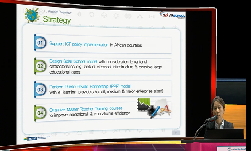When is the right time to enter children into kindergarten? In this dissertation, I employ data from the Early Childhood Longitudinal Study, Kindergarten Cohort (ECLS-K) to take an in-depth look at the timing of entry into kindergarten and ask the fo...
http://chineseinput.net/에서 pinyin(병음)방식으로 중국어를 변환할 수 있습니다.
변환된 중국어를 복사하여 사용하시면 됩니다.
- 中文 을 입력하시려면 zhongwen을 입력하시고 space를누르시면됩니다.
- 北京 을 입력하시려면 beijing을 입력하시고 space를 누르시면 됩니다.
https://www.riss.kr/link?id=T11141896
- 저자
-
발행사항
[S.l.]: The Ohio State University 2006
-
학위수여대학
The Ohio State University
-
수여연도
2006
-
작성언어
영어
- 주제어
-
학위
Ph.D.
-
페이지수
171 p.
-
지도교수/심사위원
Adviser: Elizabeth C. Cooksey.
-
0
상세조회 -
0
다운로드
부가정보
다국어 초록 (Multilingual Abstract)
When is the right time to enter children into kindergarten? In this dissertation, I employ data from the Early Childhood Longitudinal Study, Kindergarten Cohort (ECLS-K) to take an in-depth look at the timing of entry into kindergarten and ask the following questions: Are there race, class, or gender differences between those who enter "on time" and those who either enter "early" or are "delayed"? What role do reference groups play in influencing how parents might make decisions regarding the timing of entry into kindergarten for their children? And do any longer term cognitive effects exist for children according to the timing of their kindergarten entry?.
My results suggest that there are indeed differences between children by kindergarten entry status. For example, boys and White children are more likely to be held out, whereas African American children are more likely to be sent early. My results also provide limited support that parents use reference groups for guidance and comparison when considering kindergarten entry. Kindergarten entry status also appears to influence cognitive test scores over time: by third grade, children who were entered into kindergarten early perform significantly worse on reading and math assessments than children who entered into kindergarten on time. On the other hand, delayed children, who performed worse in reading and math in kindergarten and first grade than on time children have caught up by the third grade. Finally, my results suggest that the age a child enters into kindergarten and kindergarten entry status itself are two different concepts. I discuss the implications of these results for educational stratification, and stratification more broadly.
분석정보
연관 공개강의(KOCW)
-

Education Policy at the Party Conferences
Teachers TV Teachers TV -

Alcohol Education: Here's What We Want
Teachers TV Teachers TV -

Personal Finance Education: The Money Quiz
Teachers TV Teachers TV -

Early Sex Education: The Debate
Teachers TV Teachers TV -

2014 이러닝 국제 콘퍼런스 : What is the Lessons from Education Support Project~
한국교육정보진흥협회 Boseon, Kim






